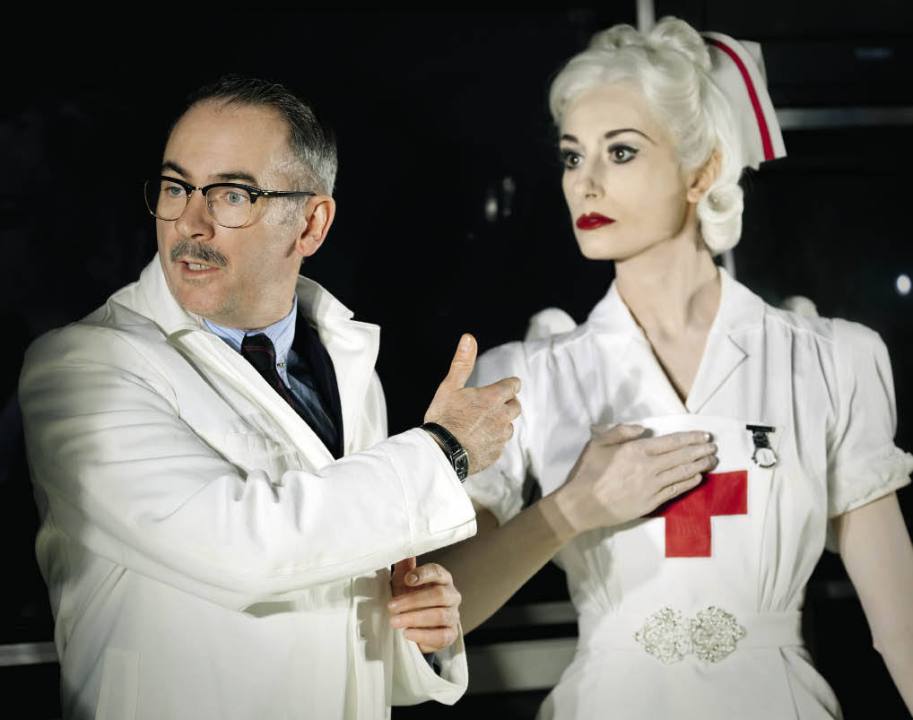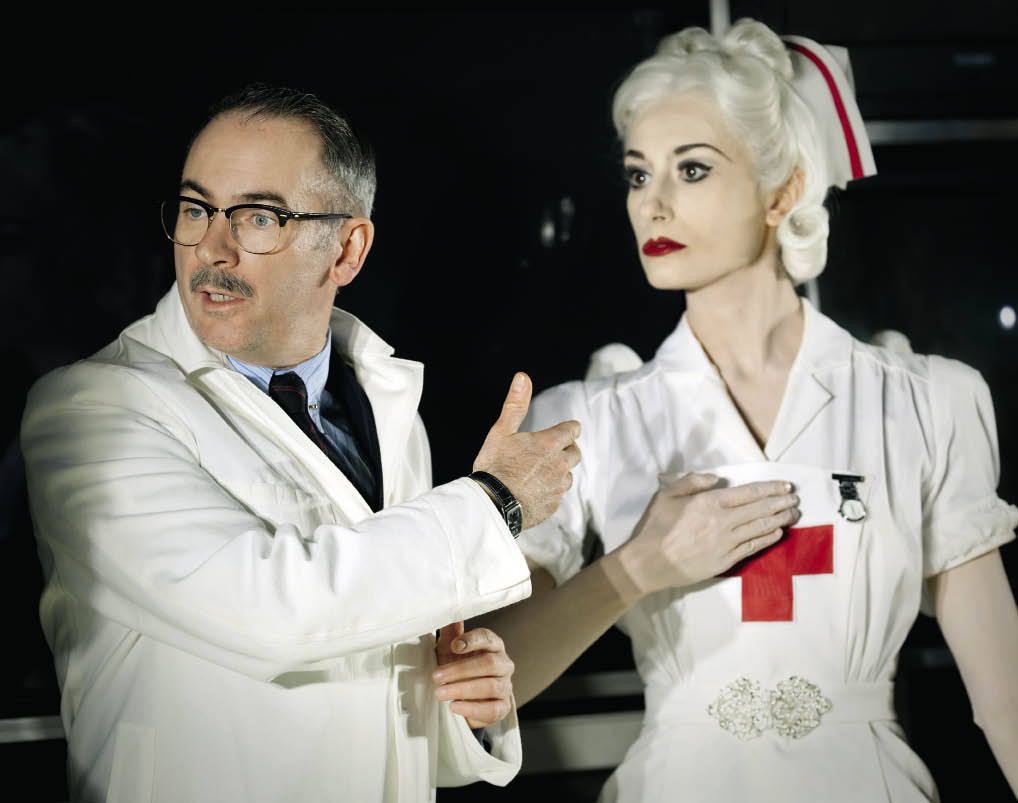Really Old, Like Forty-Five
Cottesloe, in rep until 20 April
Stage Fright
Canal Café, until 20 February
This is what the National is for. A little-known writer Tamsin Oglesby has been given a chance to shine on the Cottesloe stage. Her Alzheimer’s play sets out to give the age-old issue of old age a brisk shake-up. We’re in the near-future. A sinister new health trust, The Ark, has been set up to grapple with the problem of granny-management. Ruthless bureaucrats discuss hardline policies. Motorway-style lanes should be imposed on pavements to allow athletic pedestrians to speed past dawdling wrinklies. A new wonder-drug has been discovered whose hidden side effect is death. ‘Ten per cent of old people suffer from dementia,’ says the chief policy-maker. ‘Let’s not forget that because they certainly will.’
After a few more one-liners, we shift to a complex and asymmetrical family setting. We meet two dotty old aunts, a couple of supremely wise teenagers, a childless woman in middle-age and a hell-raising uncle who works in the theatre. In his opening scene he beats up a stranger at a première. The contrast between the warm, ramshackle family and the curt, efficient bureaucrats is too obvious to be effective. When one of the dotty aunts starts losing her marbles, the writer runs into a perennial problem with dementia drama. Alzheimer’s, by definition, is not a disease a playwright can get inside. As the brain dissolves so does the character’s capacity for eloquence or self-knowledge. The focus shifts to the sufferer’s relatives but the writer panics and changes the subject. Each relative is saddled with a health condition unrelated to Alzheimer’s. The play turns into a medical dictionary. We get pregnancy, diabetes, cancer and an amputation. In the script’s only deft move the chief bureaucrat starts to go ga-ga and is fed the lethal wonder-drug which he himself pioneered.
The script takes yet another swerve when he arrives at The Ark and encounters a newfangled robot-nurse which purrs like a kitten, strokes patients sympathetically and flails its arms about with comic ineptness. Quite why this hyper-efficient super-clinic procured such a dud piece of technology is unclear. What’s obvious is that the robotic nurse is there to prompt mirth. It even wears a hilariously old-fashioned costume of starched white linen and angel’s wings. Evidently, the designer is laughing at the script just in case the audience doesn’t.
Michela Meazza, as the cybernetic matron, makes heroic efforts to generate humour from this bit of medical slapstick. Opposite her, Paul Ritter plays the demented bureaucrat with a nicely controlled sense of frenzy, and Gawn Grainger is terrific as a randy old uncle with a crush on his own hairstyle. But I hadn’t the faintest idea what this muddled play was trying to say about the numerous issues it throws itself at. Veering uneasily between dystopian farce, family melodrama and varsity revue it never finds its voice, its theme or its setting. Still, hats off to the National for trying.
To the Canal Café theatre to discover if Abi Titmuss can act. Miss Titmuss became one of the best-known tabloid figures of the last decade. Extraordinary coincidences thrust her into the limelight. She began as a nurse. A sex scandal involving her boyfriend brought her notoriety and she decided to turn her approachable looks and surgery-free curves into a career. The ladmag market was ready and waiting. She made a fortune posing in swimwear. Good for her.
By a happy stroke of fate, her name has an innocent kinkiness built into it, a sort of musical oompah-oompah, like the snort of Benny Hill’s kazoo, which blares out whenever she is mentioned. Abi Titmuss. It sounds like a ribald half-anagram of various phrases involving cleavage exposure and gym teachers. But even this asset can’t preserve a modelling career indefinitely. Farewell bikini, hello buskin.
In Stage Fright, by Lynn Howes, she plays an actress cast in a new comedy whose script is still in development. The play opens and the performers make radical changes to the storyline during the first preview. The writer is furious. But the public are enchanted and the play becomes a hit. Lynn Howes wants to create an ironic, multilayered piece that weaves the details of Miss Titmuss’s CV into a sophisticated comic tapestry. But the production looks cheap and the cast perform with little discipline. They seem to be putting on the show for their own amusement.
Can Abi Titmuss act? Yes. She’s competent on stage. But so are tens of thousands of working actresses. She suggests no particular gift for comedy or melodrama and I wouldn’t rush to see her in another play. I wonder if TV can accommodate her. EastEnders? She’s too posh. Silent Witness? A bit too grubby. Misfit celebs in search of credibility usually head for Comic Relief. As she isn’t funny she’ll fit in quite well.








Comments